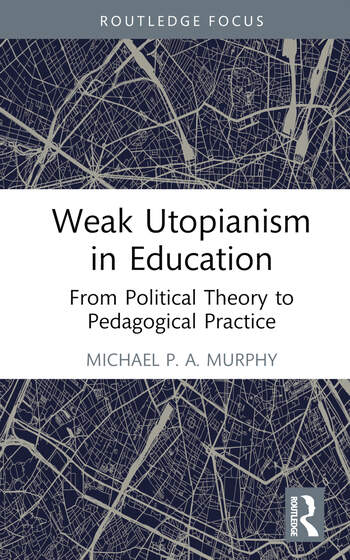Weak Utopianism in Education: From Political Theory to Pedagogical Practice (By Michael P. A. Murphy)
Main Article Content
Abstract
-
Article Details

This work is licensed under a Creative Commons Attribution-NonCommercial-NoDerivatives 4.0 International License.
References
Agamben, G. (1998). Homo Sacer: Sovereign power and bare life. Meridian: Crossing Aesthetics Series. Translated by Daniel Heller-Roazen. Redwood City: Stanford University Press. https://doi.org/10.1515/9780804764025
Chokvasin, T. (2019). The front-end model of occupational preparation and its significance to lifelong learning. Paṇidhāna: Journal of philosophy and religion, 15(1), 133-154. https://so05.tci-thaijo.org/index.php/panidhana/article/view/188201
Lewis, T. E. (2012). The architecture of potentiality: Weak utopianism and educational space in the work of Giorgio Agamben. Utopian studies, 23(2), 355-373. https://doi.org/10.5325/utopianstudies.23.2.0355
Lewis T. E. (2024). Inoperative education as drift between Eastern and Western philosophies. Education sciences, 14(9), 935. https://doi.org/10.3390/educsci14090935
Ma, Y. (2021). Living impotentially: An allegorical inquiry. TCI Transnational curriculum inquiry: The journal of the International Association for the Advancement of Curriculum Studies, 18(1), 49-66. https://doi.org/10.14288/tci.v18i1.196168
Murphy, M. P. A. (2024). Weak utopianism in education: From political theory to pedagogical practice. Rethinking Education Series. London: Routledge. https://doi.org/10.4324/9781032623924


